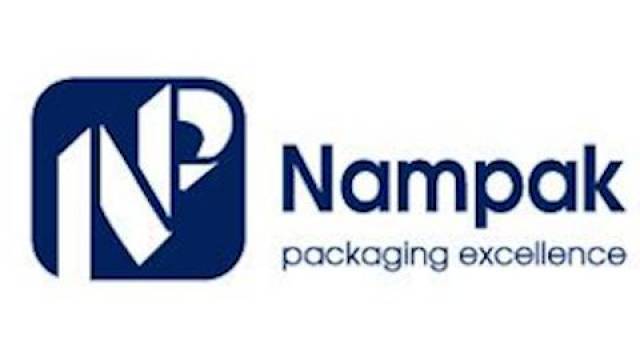Packaging group Nampak reported an 11% increase in total sales for the period to 30 September 2016 with group trading profit rising by 4%, despite macroeconomic challenges.
“The performance was due to the turnaround at Glass, good trading in Nigeria and Zimbabwe, volume increases from new customers and benefits from operational improvements that resulted in improved efficiencies and cost savings. The group-wide comprehensive performance improvement plan is delivering good results,” said Nampak CEO, André de Ruyter.
Basic earnings per share for the period increased by 11% benefiting from net abnormal gains of R258 million compared to R159 million net abnormal losses in 2015.
“The net abnormal gains were the net effect of the capital profit from the sale and leaseback transaction of R1.3 billion, the R681 million foreign exchange losses resulting from the devaluation of the naira and kwanza as well as net impairments of R360 million,” says Glenn Fullerton, Nampak CFO.
Headline earnings per share, which include foreign exchange losses but exclude the capital profit and impairments, was down 48%. The foreign exchange losses, adversely impacted headline earnings per share by 86.1 cents.
Glass delivered a trading profit of R105 million. De Ruyter said the turnaround resulted from better efficiencies and higher sales in key market segments. Despite volatile market conditions in beverages, as consumers came under pressure and customers adjusted their marketing activities, revenue was up 18%. Further incremental improvements are expected as demand recovers, said De Ruyter.
Addressing the issue of restricted cash balances in Angola and Nigeria, De Ruyter said a liquidity ratio of 77% of invoices presented for payment in the period was achieved, up from 59%, in 2015 with the Isle of Man funding the shortfall through banking facilities. R990 million of Nampak’s R2.0 billion (2015: R700 million) holdings in those countries was hedged by year-end, which significantly reduces the potential for further losses, he said.
“The unavailability of US dollars, made the timing and quantum of conversion from local currencies to US dollars uncertain and sporadic,” said De Ruyter. During the year, the Angolan kwanza depreciated by 23% and the Nigerian naira by 58% against the US dollar.
“As a result, the translation of the restricted cash to rands at the ruling official exchange rate resulted in the group incurring R681 million (2015: R161 million) in foreign exchange losses,” he said.
De Ruyter stressed that the current challenges do not fundamentally change Nampak’s overall long-term investment rationale. Through prudent consideration of growth projects, Nampak continues to focus on strengthening its position in the key growth markets of Nigeria, Angola and Ethiopia. The Rest of Africa now contributes 52% to group trading profit.
In addition, revenue in the Rest of Africa was up 26%, while trading profit rose 12% mainly due to market share gains on the back of new customer volumes as well as some import replacement. Revenue from the region contributed 31% to the group compared with 27% in 2015.
“Significant improvements were made in strengthening Nampak’s balance sheet with the conclusion of the sale and leaseback transaction that increased group equity and reduced interest bearing debt. The group’s net gearing ratio is now 49% compared to 72% in 2015. For the period under review Nampak performed well within group debt covenants, and lenders are comfortable with Nampak’s ability to service the debt,” said Fullerton.
A R1.2 billion positive swing in net working capital was delivered as active inventory management yielded positive results and improved collections reduced investment in trade receivables, added Fullerton.
Despite the continued volatility and uncertainty in key markets, Nampak remains optimistic about the long term outlook. Should macro-economic factors stabilise, Nampak is in a good position to gain from substantial pent-up demand growth.
“The focus of all divisions in the short term is on achieving greater plant efficiencies making bottles and cans profitably and maximising cash generation, while leveraging the latest-generation factory machinery as well as good partnerships. Nampak will continue adjusting to the changing trading environment, while building for the future. The organisation has undergone significant restructuring and is now optimised, with most plants operating efficiently and at world class benchmark rates,” said De Ruyter.




